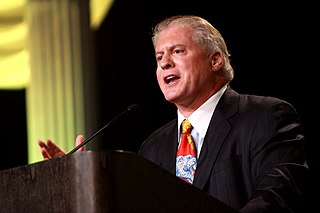A Quote by Jo Becker
The gay-rights community had a strategy going in; they thought that they needed to have 30 states with some form of recognition - whether that be marriage, whether it be civil unions - but they wanted to have 30 states signed on before they went to the federal courts.
Related Quotes
Abortion is a states' rights issue. Education is a states' right issue. Medicinal marijuana is a states' rights issue. Gay marraige is a states' rights issue. Assisted suicide- like Terri Schiavo- is a states' rights issue. Come to think of it, almost every issue is a states' rights issue. Let's get the federal government out of our lives.
[Before the Civil Rights Act of 1964], many governments in southern states forced people to segregate by race. Civil rights advocates fought to repeal these state laws, but failed. So they appealed to the federal government, which responded with the Civil Rights Act of 1964. But this federal law didn't simply repeal state laws compelling segregation. It also prohibited voluntary segregation. What had been mandatory became forbidden. Neither before nor after the Civil Rights Act were people free to make their own decisions about who they associated with.
There was only really one time that I had a substantive interaction with the president [Barak Obama] directly, and that was in 2013 when we were deciding whether to file a brief in the first gay marriage case, the Perry against Hollingsworth case. That was a weighty decision about whether the United States government was going to come in and say that heightened scrutiny ought to apply and some state bans on same-sex marriage ought to be unconstitutional. And that was the one time in my tenure where I thought I ought not make this decision without talking to the president.
The Supreme Court had the choice not only which way to rule, pro- or anti-gay marriage rights, but also how they were going to rule. They could have ruled just federalism, saying, "This isn't a matter for federal; this isn't a federal issue at all. States should decide it." Or they could decide it on equal protection grounds and say that, "Gay discrimination is wrong."
When we speak of the origin of western democracy it's precisely here, in this territory that the modern definition of democracy first emerged in city/states known now as Greece. This was coming from a society in which 30 thousand citizens had rights and 300 thousand were slaves and citizens without rights that lived in this territory. So that was the concept of western democracy; some citizens had the prerogative of exerting their civil and political rights while the others had none.
Liberals say this over and over and over again to hide the actual history, which is why I go through the specifics on the big segregationists in the United States Senate, the ones who signed the Southern Manifesto and the ones who voted against the 1964 Civil Rights Act. There's a panoply of issues to consider. The first time they objected to the Federal government doing something was when it came to civil rights legislation. This is in stark contrast to the very few Republicans who voted against the '64 Civil Rights Act.
I could never be a politician. But as uncomfortable as I would be doing so, I have no problem with Obama's long-planned 'change of heart.' This dude's made huge, measurable strides for gay rights, and if being coy about his plans for gay marriage for a few years was needed to get him elected, then so be it. LGBT persons will be better off, and federal same-sex marriage recognition will come sooner because of it.
If the court strikes down the Defense of Marriage Act, is that a 'liberal' result enabling gay couples married in states where gay marriage is legal to enjoy the same economic advantages that federal laws now grant to straight couples? Or is it a 'conservative' ruling, limiting the federal government's ability to override state power?
A generation ago, or two, when there were three channels, plus PBS, and when you needed - when you needed 15 million people to make a living, the media could focus on the broad country. And most people had no choice about getting political information. It was there at 6:30 whether you wanted it or not.
When the civil rights community raised a lot of concerns around the nomination of Mr. Sessions, Senator Sessions, one of the things was that he`s on record of saying things intrusive, like voting rights,that he doesn`t believe the federal government should interfere with local policing, almost like states` rights kind of rhetoric.































